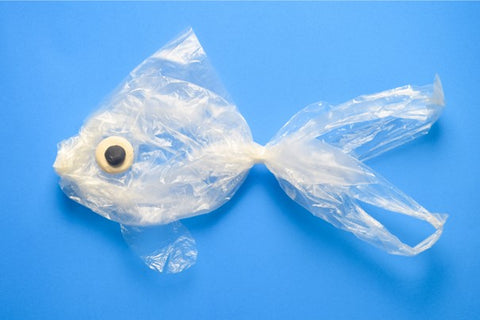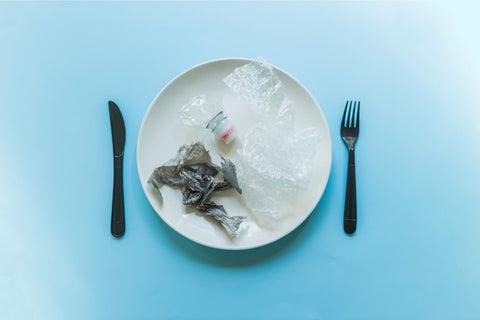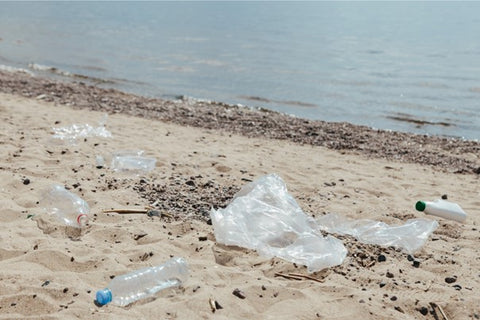The problem of plastic pollution is growing, wreaking havoc on our oceans and threatening our future. It is estimated that by 2050 there could be more plastic in the oceans than fish. This alarming statistic is a wake-up call for all of us to take responsibility for our actions and change our habits. The devastating effects of plastic pollution are far-reaching, affecting not only marine life but also human health and the global economy. As individuals, we can do something about it by reducing our plastic consumption, disposing of waste properly and and we support initiatives to solve the problem. It is time to take action and take action against plastic pollution before it is too late.

There could be more plastic in the oceans than fish by 2050
The impact of plastic pollution on marine life
Plastics in the oceans are extremely harmful to marine life. Animals often mistake plastic waste for food, which can cause serious illness and even death. In addition, pieces of plastic often get stuck in the stomach or respiratory tract of animals, which can also cause serious health problems. The polluting effect of plastics also appears in the food chain: it is increasingly likely that the fish that end up on our plates have already eaten plastic or plankton containing plastic.
Plastic pollution has a serious impact not only on marine life, but also on beaches. It contributes greatly to the destruction of coastal wildlife and prevents the growth of coastal plants. Plastic waste washes ashore, polluting coastal areas and causing significant damage to both tourism and fisheries.
The impact of plastic pollution on human health
Plastic pollution not only affects animals and the environment, but also has negative effects on human health. Microplastics accumulate in fish and other marine animals and then enter the human diet. Microplastics can negatively affect human health and cause a number of health problems, such as hormonal changes, allergic reactions, and even cancer.
In addition, the production and disposal of plastics also have negative impacts on human health. The former uses a number of hazardous chemicals that can contaminate the environment and drinking water sources, while its removal and incineration releases a number of hazardous substances into the air that can also have negative impacts on human health.

We can eat plastic along with seafood
Environmental impacts of plastic pollution
In addition to the impact on ocean life and human health, plastic pollution also has significant environmental impacts. Plastics persist in the environment for a long time and can contaminate soil and water sources. Plastics can take decades or even centuries to decompose, releasing harmful substances into the environment during this process.
Plastics endanger many animal species and lead to a loss of biodiversity. Plastics pollute the oceans in greater quantities than any other pollutant, such as oil or chemicals. Plastic pollution is one of the biggest challenges of global warming and climate change, and if we do not take the necessary measures, it could affect the entire planet.

Garbage on the beach
Solutions to plastic pollution
Solving the problems caused by the 8 tons of plastic that enter the oceans every year is our shared responsibility. We can stand up for the cause ourselves by using recyclable materials instead of single-use plastics, recycling and littering campaigns. It is important to get rid of our plastic waste properly, not allowing it to end up in the oceans.
How can we reduce plastic waste?
One of the most important things we can do to reduce plastic waste is to avoid single-use plastics. Instead, choose reusable alternatives, such as canvas bags, glass bottles, or strive to recycle and look for products available in recycled packaging.
Recycling plastics reduces the environmental impact and helps preserve natural resources. Packaging marked POP, or Prevented Ocean Plastic, is made from waste collected from the shores of seas and oceans exposed to plastic pollution, so the best solution is to choose products with such packaging.
Steps taken by CYCLE
CYCLE's latest product, the limited summer edition surface cleaning concentrate, has been presented in a POP bottle, and our 5 liter, 500 ml and 50 ml bottles are made from 100% recycled plastic.
By choosing recycled and POP bottles, we are also striving to protect our oceans, and thus our health and environment, from the dangers of plastic pollution. We want to encourage and inspire other participants in the industry to change for a more sustainable and healthier future.




